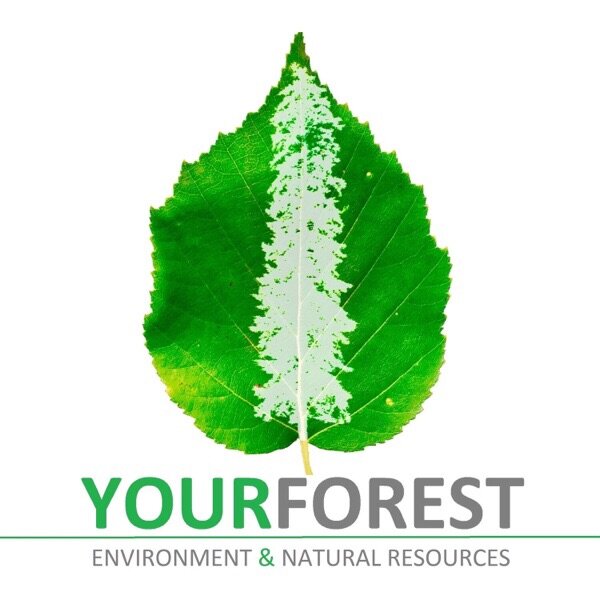Hosted by Amy Cardinal Christianson, and Matthew Kristoff. Amy is a Métis woman from Treaty 8 territory, currently living in Treaty 6, and a research scientist with the Canadian Forest Service, Natural Resources Canada. Matthew grew up in Treaty 8 territory and now lives in Treaty 6. He is a forester in the province of Alberta, Canada and the creator of YourForest Podcast.
Episode highlight
In this podcast, Bhiamie Williamson discusses the connection of Indigenous peoples to the land, and how cultural burning is a way to preserve both the environment and cultural heritage.
Resources
Strength from perpetual grief: how Aboriginal people experience the bushfire crisis
Royal Commission into National Natural Disaster Arrangements
Sponsors
The Canadian Partnership for Wildland Fire Science
Support from:
● California Indian Water Commission
● Firesticks Alliance Indigenous Corporation
Quotes
12.00 - 12.10: “There is so much trauma in our communities, people have never had the opportunity, I feel, to kind of pick themselves up and dust themselves off from colonization.”
Takeaways
Fire is a shared resource (5.58)
As an Aboriginal child growing up in Australia surrounded by his culture, Bhiamie “always had a love for country”. He studied environmental and political sciences at university and worked with Aboriginal groups towards his thesis. He discovered that cultural burning was a powerful tool for cultural transmission, managing the land, bringing non-Indigenous people into the conversation of making fire safe, and having people work in the landscape.
Land is at the center of healing (11.26)
Bhiamie points out that fire plays an important role in Indigenous healing practices. He finds cultural burning “immersive and… restorative”, and a wholesome opportunity for Indigenous peoples to heal their spirits and the land. He laments that mainstream mental health practitioners are not equipped with a well-developed Indigenous psychological therapeutic model. Cultural burning can prevent wildfires, thus preventing the trauma of losing ancestral lands.
Sharing the load (19.04)
Bhiamie feels connected with the Indigenous peoples of Canada, in the shared way of life and ethics. He notes that interest in Aboriginal cultural burning was only piqued after the recent bushfires in Australia. He has written an article summarizing how Aboriginal peoples experience the loss from wildfires differently, which has inspired governments and agencies to provide trauma-informed support to Aboriginal peoples.
The land is a living museum (24.42)
Bhiamie informs that Aboriginal peoples have connections to land, and the animals, trees, stones, and petroglyphs are all part of the cultural heritage. Loss of land through wildfires means a loss of culture, identity, the ability to practise traditions and pass them on, and medicines that come from nature. He envisions an emergency management strategy that addresses life, property and the environment.
“The best form of protecting is prevention” (30.22)
Bhiamie believes that the government should be protecting all land, not just when the fire hits. He recommends engaging Indigenous peoples in prevention conversations which can help in high-pressure conditions. He narrates how the emergency management team in two locations in Australia mindfully sought the advice of Indigenous peoples in fire management for their knowledge of the land, which led to effective outcomes for wildlife and cultural values.
“Think ahead and be happy to be unsettled” (38.37)
Bhiamie comments on the impacts of colonization and “centuries of oppression”, and the need to overturn it. He emphasizes the need to recognize that Indigenous peoples have not been allowed to participate equally in society, but the burden of working effectively with non-Indigenous peoples has fallen on them. When land managers learn how to work effectively and respectfully consult with Indigenous peoples, they will do, be and feel better at their job.
True reconciliation (46.59)
Bhiamie explains the Royal Commission into National Natural Disaster Arrangements which was passed after the Australian bushfires. He examined the inquiries for previous bushfires to “expose how Indigenous peoples had been made invisible in those inquiries previously” and advocated for a central role for Indigenous peoples. He shares his experiences participating in the inquiry and expresses his preference to have Indigenous peoples design their own emergency management programs across different lands in Australia.
Children of the future (59.19)
Bhiamie describes the differences in the Indigenous and non-Indigenous populations of Australia, with a majority of the Aboriginal population being young. This brings up the need to provide educational and developmental support along with family and social support to ensure the same opportunities for academic achievement and success in life for Indigenous youth, especially after natural disasters.
“It’s just not good enough to ignore us anymore” (1.02.37)
Bhiamie observes that even when Indigenous peoples are invited to share their opinion, they are marginalized, with tokenized opportunities that contain the impact they can have. He invites listeners to imagine what society would look like if Indigenous people were in decision-making positions.
Indigenizing masculinity (1.08.41)
Bhiamie’s Ph.D. research is on Indigenous men and masculinity, exploring masculinity from an Indigenous perspective, a topic which was inspired by the contrast of public perception of Indigenous men and their actual nature as Bhiamie observed through interactions in fire management groups. He has seen the best and worst of men, and looks to explore how masculinity narratives have led to “deplorable rates of violence against women and children”.
“You can call that decolonization, I just call that common sense” (1.14.13)
In Bhiamie’s opinion, the first step to decolonization is to employ Indigenous peoples in senior roles and work to make the organizational culture safe to empower them to share their voices and experiences, which can be transformative for non-Indigenous people as well. Land justice and repossession by Indigenous peoples, as well as cultural burning to manage climate change, are the next steps.
You can get in touch with the hosts of this podcast via email: amy.christianson@canada.ca and yourforestpodcast@gmail.com.
If you liked this podcast, please check out YourForest podcast too, rate and review it on Instagram and Facebook and tag a friend, and send your feedback and comments to yourforestpodcast@gmail.co.

